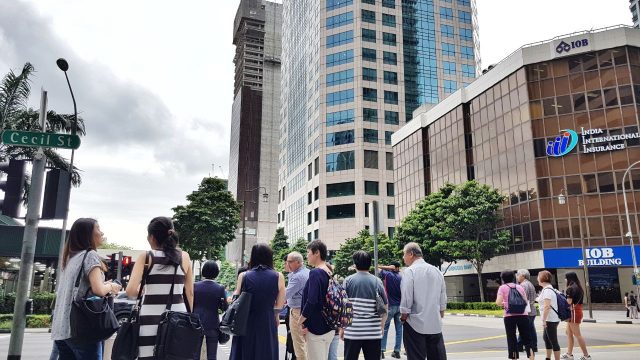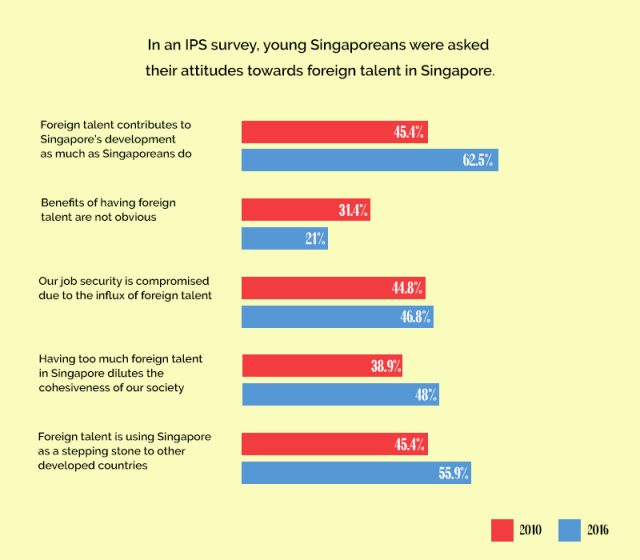
Mr Vince Chong, 65, moved to Singapore in 1995. Currently a senior advisor to a Japanese conglomerate in Singapore, he had previously worked in several engineering firms in Australia and Malaysia. The Malaysian has permanent residency in Australia and New Zealand, but he has chosen to settle down in Singapore where he is a permanent resident.
“As I had lived many years in Australia, I found that there was (a) ‘glass ceiling’ that had prevented my personal and career growth,” said Mr Chong of the reason behind his move to Singapore. He spoke of his seamless transition and integration here. He also likes the sense of security and the attractive living conditions here.
Mr Chong said he has never considered Singapore as a stepping stone “to a better life”. He’s just glad that he meets a particular need of Singapore, which provides him with the opportunity to work in an industry here that is less attractive to local residents. He is currently attempting to obtain citizenship in Singapore.
An Institute of Policy Studies (IPS) survey found 55.9 per cent of young Singaporeans between 19 and 30 years old believe foreign talents are using Singapore as a stepping stone to other developed countries, compared to 45.4 per cent in 2010.

Mr Leong Chan-Hoong, senior research fellow and head of IPS Social Lab explained that the survey findings showed “a polarization of both extremes” and is a reflection of the complexity of the relationship between Singaporeans and foreign talent.
“On one hand you do recognise that there are things that Singaporeans don’t do or don’t do well, so it fills the gap. On the other hand, you feel that they are not here to stay for the long run, maybe using Singapore as a stepping stone to other developed Western economies such as the United States and Europe,” said Mr Leong.
He also acknowledged that the government has addressed the concerns of Singaporeans since 2010 and adjusted policies to recognise and prioritise Singaporeans in areas such as housing, education and medical subsidies. Despite this, Mr Leong finds that the depth of interaction between the Singaporean circle and expatriate circle is evidently absent.
Ms Claire, 47, who does not wish to reveal her full name, also disagrees with the notion that most expats are using Singapore as a stepping stone to other developed economies.
Holding dual Australian-British citizenships, Ms Claire was working in the oil and gas industry in Dubai until she lost her job after the 2008 financial crisis. She relocated to Singapore in 2009 to work in the recruitment industry.
During her stay here, she said she’s glad she can help drive local hiring and transfer her skills to her Singaporean colleagues. She also gave birth to her daughter here in 2012.
But the Employment Pass holder doesn’t intend to apply for citizenship or permanent residency here. Neither does she intend to migrate to other developed countries to further her career.
“The plan was always to return home,” she said.
